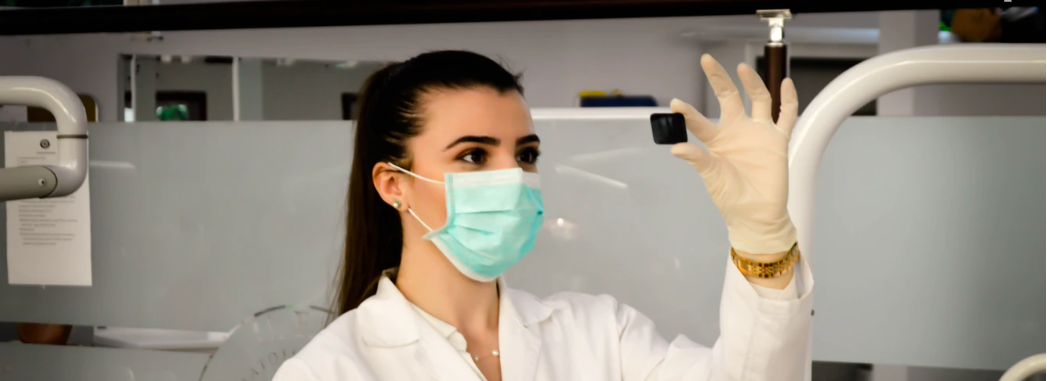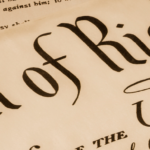Is a cheek swab an illegal search and seizure?
In a case before the United States Supreme Court, the issue was whether a defendant’s 4th Amendment rights were violated when DNA was taken without consent via a cheek swab.

It takes a top defense lawyer to know when and how to argue a successful Motion to Suppress Evidence!
In Maryland v King, the United States Supreme Court determined that taking a DNA cheek swab as part of the booking process does not violate a defendant’s Fourth Amendment right against unreasonable or illegal searches and seizures. Police arrested King. During booking, police used a cheek swab to take a DNA sample. As a result, he was charged and convicted of an unrelated rape based on the results of the forced DNA sampling. On appeal, he argued that taking the DNA sample was invasive and against his consent. He, therefore, claimed that police needed a warrant to take the sample. The United States Supreme Court disagreed.
Court Ruling on Illegal Search and Seizure
The Court noted that when determining whether a search is reasonable, the reviewing judge must consider the legitimate governmental interest involved against the degree to which the search intrudes on a person’s privacy. In this case, the Court decided that the judge must give great weight to the significant governmental interest in identifying arrestees and the unmatched potential of DNA identification to serve that interest. The Court determined that the privacy intrusion of a DNA cheek was minimal and involved virtually no risk, trauma, or pain.
The Court ruled that taking a DNA cheek swab is no different than taking fingerprints or photographs and, therefore, is a legitimate police booking procedure that is reasonable under the Fourth Amendment.

Why are some police searches illegal?
Police searches become illegal, including DNA cheek swabs, when they violate the constitutional protections afforded to individuals under the Fourth Amendment, which guards against unreasonable searches and seizures. A search is typically deemed illegal if it is conducted without a valid search warrant, without probable cause, or beyond the scope of the warrant’s authorization. The Fourth Amendment requires law enforcement officers to have a warrant, based on probable cause and issued by a judge, to conduct a search, except in certain circumstances where exceptions apply, such as exigent circumstances or when the evidence is in plain view. Searches conducted without adhering to these legal requirements or without proper justification can lead to the suppression of any evidence obtained, as such evidence is considered the “fruit of the poisonous tree,” a principle designed to prevent law enforcement from benefiting from constitutional violations. Understanding the intricacies of what makes some police searches illegal is crucial in protecting one’s rights and ensuring that justice is served in accordance with the law.

Does the skill of a lawyer matter when seeking the suppression of evidence, such as a DNA cheek swab?
A lawyer’s skill plays a pivotal role when seeking the suppression of evidence, as it requires a deep understanding of legal standards, precedents, and the nuanced intricacies of constitutional law. An adept lawyer knows how to meticulously scrutinize the circumstances surrounding the collection of evidence, identifying any violations of constitutional rights, such as breaches of the Fourth Amendment’s protection against unreasonable searches and seizures. The ability to craft compelling, persuasive arguments highlighting these violations is crucial in convincing a judge to deem the evidence inadmissible. Furthermore, a skilled lawyer’s experience with similar cases and their strategic approach to litigation can significantly influence the outcome of a suppression hearing. The art of effectively arguing for the suppression of evidence is a testament to a lawyer’s proficiency. It can dramatically impact the direction and viability of the prosecution’s case, underscoring the undeniable value of legal expertise in the realm of criminal defense. Suppose DNA obtained from a cheek swab is critical to the prosecution’s case. An aggressive, reputable lawyer can move to suppress the evidence if it was collected in violation of the defendant’s constitutional rights.

Attorneys Experienced with Illegal Search and Seizure Issues
The United States Supreme Court decides several criminal cases during each term of the Court. Criminal defense attorneys must be aware of any changes in criminal law and be prepared to use them to benefit the people they represent. While many criminal defense lawyers are too afraid to pursue these issues vigorously, the trial and appellate attorneys at LEWIS & DICKSTEIN, P.L.L.C. will fight for you!
We constantly review new court decisions, such as the DNA cheek swab case, and regularly attend continuing legal education seminars to ensure we are always aware of the latest rulings impacting the defense of our clients. We are experienced, well-respected, and creative in using existing criminal law to help the people we represent. If you need help or have questions regarding criminal law or illegal search and seizure, do not hesitate to contact the attorneys at LEWIS & DICKSTEIN, P.L.L.C. If the police violated your rights during an unlawful, unconstitutional search and seizure, we can help you!
Call us today at (248) 263-6800 for a free consultation or complete an online Request for Assistance Form. We will contact you promptly and find a way to help you.














